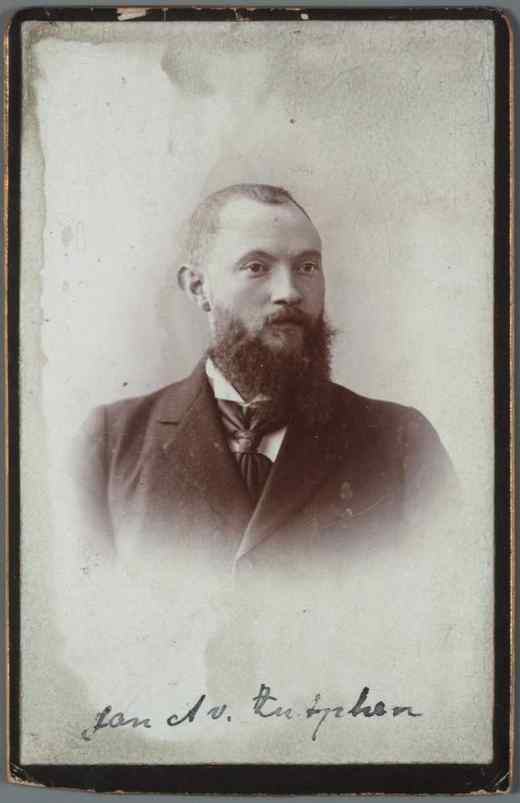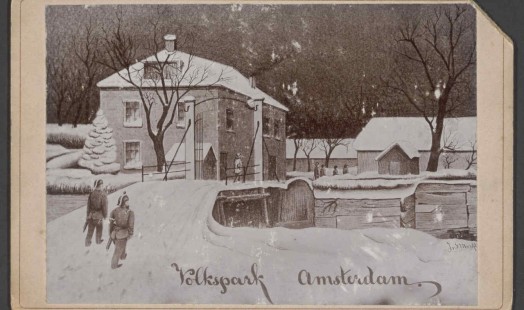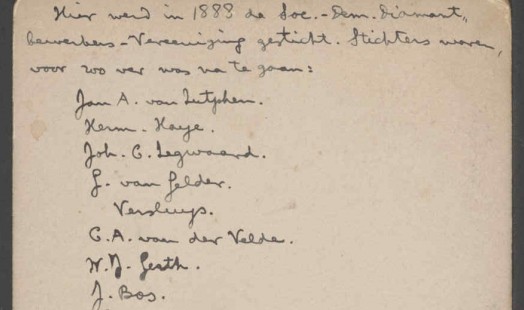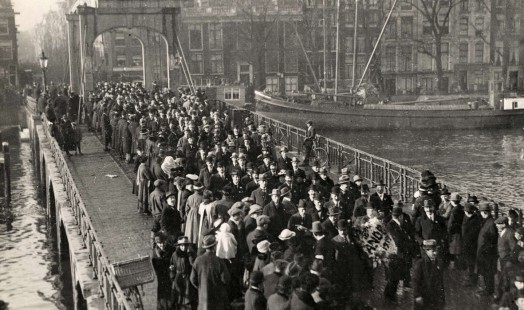By the late 1890s little demand remained for polished diamonds. Many polishers were unemployed, and those who still had work were given stones of ever poorer quality. Among the most affected were the chip polishers, who polished the inferior small stones. They earned progressively less for this work, especially because their overhead costs were high: they had to pay rent for their own polishing mill, as well as the wages of their setters, while the jewellers (their commissioning agents) charged far too much for the boart, diamonds crushed to powder to be used for polishing diamonds. The situation became desperate, when batches of deeply inferior diamonds arrived from Brazil. One week later, most chip polishers had not even covered their input costs. ‘After such a week of great struggle and highly stressful work, desperation and embitterment prevail,’ noted Van Zutphen. [1] The chip polishers at the diamond polishing factory ‘De Drie Fontijne,’ where Van Zutphen worked as the foreman, sent him to several jewellers to advocate a rate increase. The jewellers agreed to accommodate this request, but only if other jewellers did the same. ‘That meant that a strike was necessary,’ noted Van Zutphen, adding: ‘From all misery emerges the flame of resistance. The flame of resistance will devour the misery,’ reads the poem by Henriëtte Roland Holst composed under the murals by her husband Richard Roland Holst in the Union Council room in De Burcht. [2]
On 5 November the workers at De Drie Fontijne laid down their work, and those on strike went to the other polishing factories (of which there were 63). The next day a large gathering was organized on Museumplein; the mass assembly received extensive press coverage. A strike committee was formed, with Henri Polak among its members. This committee negotiated with the jewellers, minimum rates were adopted, and polishers were no longer required to purchase boart from jewellers. Following this successful strike, the ANDB was formed on 18 November 1894. ‘Henri’s […] skill as an orator and writer and his organizational talents were conducive to founding Algemene Nederlandse Diamantbewerkersbond. […] At the time our team effort came to symbolize the two large groups of fellow tradesmen of Jewish and Christian origin,’ explained Van Zutphen. [3]
[1] ‘Henri Polak,’ manuscript of lecture about Polak at the IISH, Archive of Jan van Zutphen, ARCH01693_55f.
[2] Ibid
[3] Ibid









